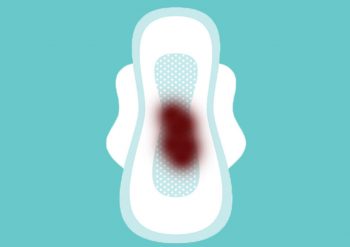Implantation bleeding is one of the first signs of pregnancy and can be a source of excitement and anxiety for many women.
But how long does implantation bleeding last? Is it normal? And what should you do if it continues for longer than expected?
In this blog post, we’ll explore everything you need to know about implantation bleeding and provide some helpful tips to help you get through this early stage of pregnancy.
What is implantation bleeding?
Implantation bleeding is a light spotting of blood that occurs when the embryo implants in the uterine lining.
This usually happens around 6-12 days after fertilization and is one of the first signs of pregnancy.
Although it’s often mistaken for an early period, implantation bleeding is generally lighter and shorter, lasting no more than a few days.
How long does implantation bleeding last?
Implantation bleeding can last anywhere from a few hours to a few days. For most women, it lasts between 1-3 days and is usually a light pink or brown discharge.

However, in rare cases, it can last up to a week or more. If you experience heavy bleeding or cramps, it’s important to consult your healthcare provider, as this could be a sign of a more serious condition.
Is implantation bleeding normal?
Yes, implantation bleeding is perfectly normal and nothing to be worried about. It’s a sign that the embryo has successfully implanted in the uterine lining and that pregnancy has begun.
However, if you experience heavy bleeding or cramping, it’s important to consult your healthcare provider, as this could be a sign of a more serious condition, such as an ectopic pregnancy or miscarriage.

What should I do if implantation bleeding lasts longer than normal?
If implantation bleeding lasts longer than expected, it’s important to consult your healthcare provider.
While it’s usually nothing to be worried about, it could be a sign of a more serious condition, such as an ectopic pregnancy or miscarriage.
Your healthcare provider will be able to perform tests and exams to determine the cause of the bleeding and provide appropriate treatment if necessary.

How can I manage implantation bleeding?
To manage implantation bleeding, it’s important to wear a panty liner or light pad to protect your clothes.
You should also avoid using tampons or having sex until the bleeding stops. It’s also important to stay hydrated, get plenty of rest, and avoid strenuous physical activity.
If you experience cramping, you can use a heating pad or take over-the-counter pain relievers, such as acetaminophen or ibuprofen.

Implantation bleeding is a perfectly normal part of early pregnancy and usually lasts no more than a few days.
While it can be a source of anxiety for many women, it’s important to remember that it’s a sign that the embryo has successfully implanted in the uterine lining and that pregnancy has begun.
If you experience heavy bleeding or cramping, it’s important to consult your healthcare provider, as this could be a sign of a more serious condition.
By staying informed and seeking appropriate medical care if necessary, you can ensure a healthy and successful pregnancy.


